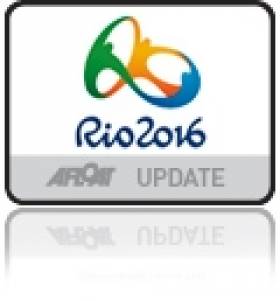Displaying items by tag: Rio 2016
Irish Sailing's Sister Act Plan on Rio 2016
#RIO 2016 – It's well known that Annalise Murphy was barely off the water in Weymouth before she committed herself to a further few years sailing hard in the Laser Radial class for the 2016 Olympic Games in Rio de Janeiro.
What's probably less well known is that older sister Claudine has also set her sights on Brazil, campaigning in the new Olympic kitesurfing class.
News of the double campaign in the Murphy household was revealed in The Irish Times by Pamela Duncan prior to Annalise's medal race a week ago.
Claudine says there was "big rivalry" between her and Annalise as both pursued success in the Laser Radial, but they also realised that only one of them could represent Ireland in the class at Olympic level. Annalise showed the potential, and Claudine turned her hand to a different class.
“She’s my best friend in the whole world,” says Claudine, who flew in to support her sister from the Caribbean where she is already hard at work campaigning for a spot at the Rio Games in kitesurfing - a somewhat controversial addition to the Olympic schedule.
Meanwhile, Annalise Murphy and the Irish sailing team were welcomed home with a guard of honour at the National Yacht Club in Dun Laoghaire yesterday evening.
Annalise also announced plans to take things relatively easy for the next year, returning to UCD next month for a science degree.
"I deferred it three years ago as I didn’t want to put a half-hearted approach into college or sailing," she said. "I’m older now and I feel like I can manage things better.”





























































